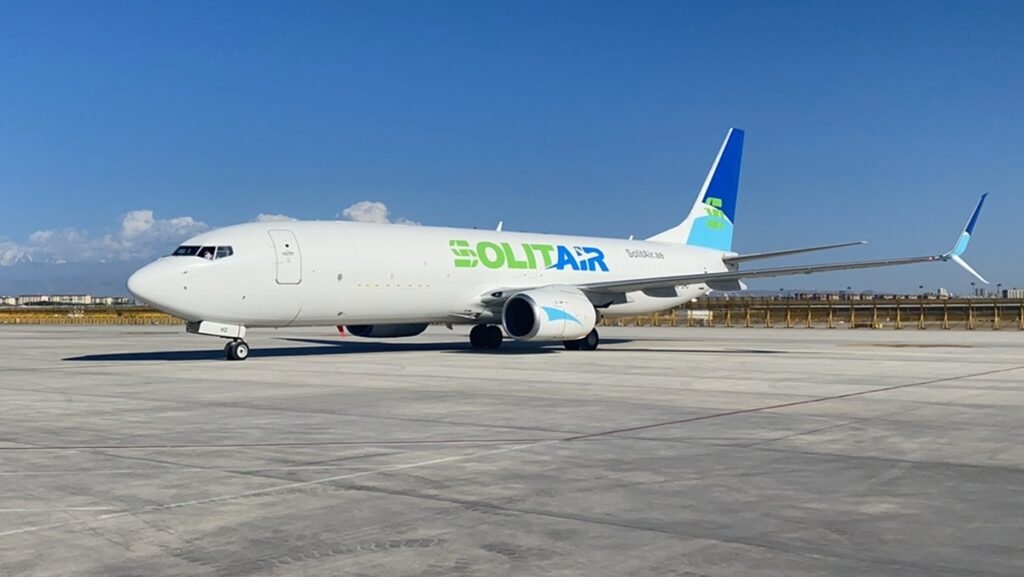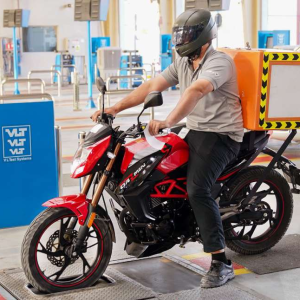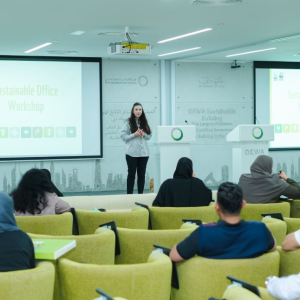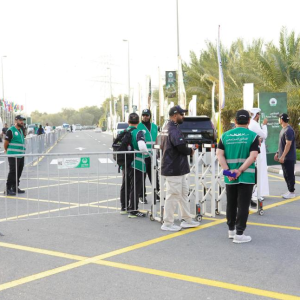SolitAir Dubai Global South cargo routes have become a benchmark in the air cargo industry within just one year of operation. The Dubai based cargo airline has celebrated its first anniversary by establishing a robust network of nearly 30 cargo routes connecting key cities across the Global South. This rapid expansion underscores SolitAir’s strategic vision to connect emerging markets, foster trade, and support businesses with reliable and efficient air cargo services.
From its very first flight, SolitAir has shown that it is more than just a new player in the market. Its dedication to reliability, operational efficiency, and customer focused services has positioned it as a significant force in global logistics. The airline’s approach combines strategic route planning with fleet expansion, technology driven logistics, and a commitment to serving regions often overlooked in traditional cargo networks.
A Year of Rapid Expansion
In its inaugural year, SolitAir launched flights to major cities in the Middle East, South Asia, and Africa. Cities such as Mumbai, Ahmedabad, Bengaluru, Istanbul, Baghdad, Hong Kong, Urumqi, Kuwait, Bahrain, Beirut, Erbil, Dhaka, Karachi, and Lahore have all become critical nodes in the airline’s growing network. By focusing on regions with high trade potential and underserved logistics needs, SolitAir has successfully carved a niche in the air cargo sector.

The airline operates from a large state of the art logistics hub at Dubai World Central (DWC), which serves as the backbone of its operations. This hub allows SolitAir to efficiently manage scheduled flights, charter operations, and customized cargo services. Its infrastructure is designed to handle diverse types of cargo, ranging from perishable goods to hazardous materials, ensuring that businesses across its network can rely on fast and secure deliveries.
SolitAir’s first year was not only about connecting cities but also about demonstrating reliability. The airline introduced operational standards that prioritized punctuality, safety, and cargo integrity. This commitment quickly earned the trust of businesses, manufacturers, and logistics partners who rely on timely deliveries to meet their own operational goals.

Fleet Expansion: Building Capacity for the Future
SolitAir started its operations with a modest fleet but wasted no time in planning for growth. By the end of its first year, the airline had expanded its operational fleet to seven Boeing 737 800 freighters. This included the addition of two new aircraft, one of which immediately began service, while the second was scheduled to join the fleet shortly.
The strategic expansion of the fleet is part of SolitAir’s broader vision to reach a 20 aircraft fleet by 2027. This growth is expected to significantly enhance the airline’s capacity, allowing it to serve more cities, carry larger volumes of cargo, and meet the increasing demand in emerging markets. The focus on fleet modernization and expansion ensures that SolitAir can operate with flexibility and efficiency, reducing turnaround times and offering more frequent services for its clients.
Moreover, the fleet strategy is not just about numbers; it is about capability. Boeing 737 800 freighters are renowned for their reliability, fuel efficiency, and adaptability for various cargo types. By leveraging these aircraft, SolitAir can optimize its operations, manage costs effectively, and provide high quality service across all routes.
Strategic Focus on the Global South
SolitAir’s commitment to the Global South sets it apart from many other cargo airlines. While traditional carriers often focus on well established routes in Europe, North America, and East Asia, SolitAir has identified a critical opportunity in regions with growing trade and logistics challenges. By targeting Africa, South Asia, and parts of the Middle East, the airline connects markets that are often underserved yet rich with potential.
This strategic approach has multiple benefits. First, it allows SolitAir to establish a strong presence in competitive yet untapped regions. Second, it enables local businesses to access reliable air cargo services that were previously unavailable or limited. Third, it strengthens trade links across emerging economies, contributing to broader economic growth in these regions.
The airline tailors its operations to meet specific regional needs. For example, it handles perishable goods such as fresh produce, seafood, and pharmaceuticals, ensuring they reach their destinations in optimal condition. It also caters to industrial cargo, oversized shipments, and time sensitive deliveries, offering solutions that are flexible and efficient.
Enhancing Connectivity and Trade
The expansion of SolitAir Dubai Global South cargo routes has had a profound impact on trade connectivity. By linking cities that are central to regional commerce, the airline facilitates faster, more reliable movement of goods. Businesses in South Asia, the Middle East, and Africa can now reach markets that were previously challenging due to limited air cargo options.
Improved connectivity also reduces dependency on slower or less predictable transportation methods. For perishable and high value goods, air cargo offers significant advantages over sea or road transport. SolitAir’s services provide companies with an assurance of speed, security, and consistency, which are critical for meeting the demands of today’s competitive markets.
Furthermore, the airline’s network design supports multi stop routes, enabling cargo to move efficiently between smaller cities without unnecessary delays. This approach benefits regional businesses, exporters, and importers by opening access to international markets that were previously difficult to reach.
Commitment to Operational Excellence
SolitAir’s operational model is built on precision and customer centric service. The airline has implemented processes that ensure cargo is handled safely, transported efficiently, and delivered on time. Its use of advanced logistics technology allows for real time tracking, predictive scheduling, and optimization of flight paths.
The airline also emphasizes workforce training and safety standards. All operational staff undergo rigorous training to ensure compliance with international cargo regulations. This attention to detail not only ensures safety but also builds confidence among clients who depend on SolitAir for critical deliveries.
Customer experience is another area where SolitAir has invested significantly. From booking to delivery, the airline provides a seamless experience with responsive support, transparent tracking, and flexible service options. By combining technology with human expertise, SolitAir has created a logistics ecosystem that meets modern business needs.
Sustainability and Future Growth
As the airline looks toward the future, sustainability and innovation remain central to its strategy. Expanding the fleet and network is balanced with efforts to reduce environmental impact through efficient flight operations and fuel optimization. These initiatives align with global trends in sustainable aviation and responsible business practices.
SolitAir also plans to invest in technology driven logistics solutions that enhance operational efficiency. Advanced cargo management systems, AI based route optimization, and predictive analytics will help the airline maximize utilization, minimize delays, and maintain competitive pricing.
By combining growth, sustainability, and technology, SolitAir aims to establish itself as a model for modern air cargo operations, demonstrating that rapid expansion can coexist with responsible business practices.
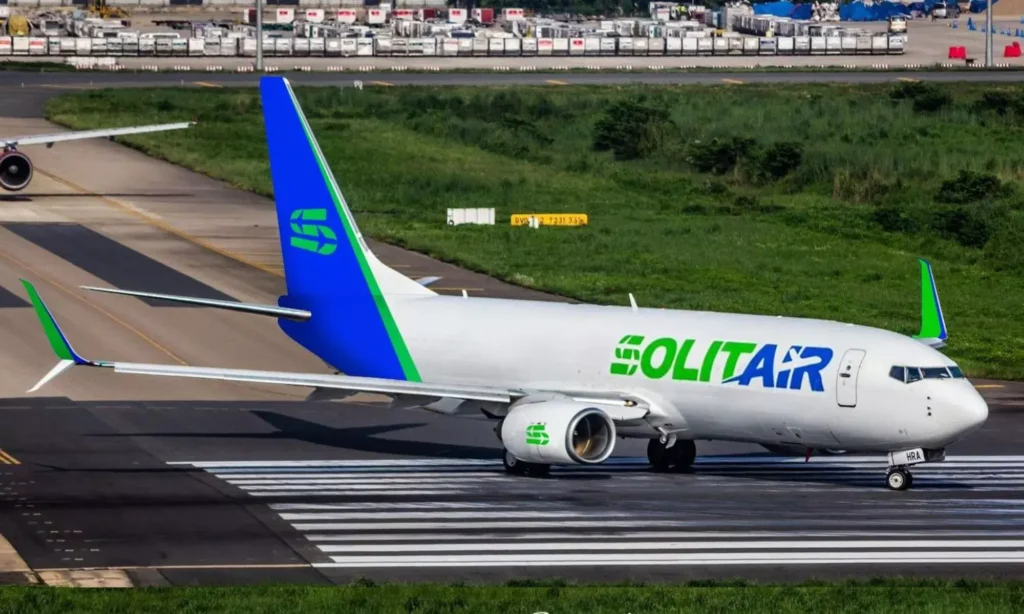
The Road to 2027 and Beyond
Looking ahead to 2027, SolitAir envisions a fleet of 20 aircraft and a network connecting over 50 cities within a six hour flight radius from Dubai. This ambitious plan will further strengthen trade and commerce across the Middle East, South Asia, and Africa, positioning Dubai as a key hub for air cargo operations.
The growth strategy involves not just expanding routes but also enhancing service quality. New hubs, improved infrastructure, and optimized cargo handling processes will ensure that SolitAir can meet increasing demand while maintaining high standards of reliability and safety.
As the airline scales, it will also continue to focus on customer centric innovation, providing businesses with tailored solutions to meet specific logistics challenges. The combination of fleet growth, network expansion, and technology adoption ensures that SolitAir is well positioned for long term success.
Conclusion: A Year of Milestones and Promising Horizons
SolitAir Dubai Global South cargo routes represent more than just a network of flights; they symbolize a vision realized within a single year. From its first flight to nearly 30 strategic destinations, SolitAir has demonstrated agility, reliability, and foresight. Its commitment to serving the Global South, investing in fleet expansion, and enhancing operational excellence positions the airline as a significant player in global logistics.
As SolitAir continues to grow, the airline’s journey will not only connect cities and businesses but also enable economic development across emerging markets. Its first year is a testament to what vision, planning, and execution can achieve. By 2027, with a fleet of 20 aircraft and an expanded network, SolitAir is poised to redefine air cargo logistics and play a pivotal role in connecting the Global South to the wider world.
The story of SolitAir’s first year is one of ambition, execution, and impact. It highlights how a focused strategy, combined with investment in people, technology, and infrastructure, can transform an airline into a trusted logistics partner. For businesses, the Global South, and Dubai’s aviation ecosystem, SolitAir represents growth, opportunity, and a brighter future in air cargo transport.
Do follow UAE Stories on Instagram
Read Next – Dubai Beach EDITION: Marriott and Shamal Holding Launch Luxury Resort

